Marina is a student budget master
Meet Marina:
Early 30’s
Immigrated to Canada as a child
A true global nomad calling Toronto the closest place to home there is
Currently a full time student pursuing her Masters degree in Europe
Single
Personal income under $20 k annually
I have known Marina for years and I have found her openness to the world, learning and new experiences, inspiring. She is smart, dedicated and knows that she wants to live a life with strong community, openness, sustainable ways of living and intellectual engagement.
The trouble is, this is often at odds with our society’s standard out of the box offering. Let’s be honest, the ability to make a decent living, using your brain in a meaningful manner for an organization that positively contributes to society is pretty rare.
Marina could get an everyday administrative job in research for low to average pay but she would probably still struggle financially and this does not give her what she needs. Courageously, she has chosen to problem solve her way towards her desired life. She is currently pursuing her master’s degree in a conservation field. Knowing she wanted greater education yet cost was a barrier (the Ontario government had not yet introduced free tuition for students from low income families), she looked beyond Canada to countries that provide free education to international students.
She identified Germany, Finland, and Norway as free options and France as an option with nominal cost. Learn more about European tuition costs
As a full time student, she then works systematically and with an intense focus to manage her budget. This means a number of strong lifestyle choices including:
Shared living; In Europe she lives in student housing and in Toronto, she has been a long time renter of a room. She has built a strong relationship with the homeowner, often contributing to the care of the house and is the only person the owner rents to. This has kept her costs at $600 and provides her with the flexibility to study in Europe and then come to work in Toronto for 6 – 12 months at a time
Intense knowledge & management of her finances combined with efforts to seek out alternatives that work for her;
She regularly looks and applies for scholarship and grant opportunities. She has engaged in 3 separate exchanges across Europe
She takes advantage of a breadth of free festivals and entertainment. In Toronto, she is a lover of art and frequently takes advantage of the free passes provided by the Toronto Library and Museum Art Pass program. In her school town, she found a retailer that sold foodstuffs that were about to expire but were most often perfectly fine
Marina lives with the material goods she has. When moving to Europe, she visibly saw how much money she had spent on accumulating things and how they had no long term value. She now works to refrain from buying things
Stays away from recurring costs; In Europe she uses a pay as you go phone and outside of Europe she manages just fine with skype and WhatsApp
Investing in periodic breaks from her studies to focus on earning money to advance her life
Right now Marina is taking a break from her Masters to earn funds for living expenses. Although tuition is free, she is required to have a bank account with sufficient funds for living expenses during her studies. She is working to save up $8,500 to finish up her academic work
Working during her studies; Marina earns supplemental income during the school year by providing editing, proof reading and translation services
This frugal approach to finances is enabling her to slowly but surely build the experience needed to advance her career. She recently pitched an international conservation organization on a free 10-week internship and has translated that into a paid consulting project.
When talking about how she priced her consulting project, she indicated that is was more important for her to do the work than to get the money. Given this, she looked at the costs of existing consultants and wages for similar work. She knew that their education and experience were greater than hers, so she priced her work in a way that was beneficial for her but also provided a cost savings to the organization. She also built in expenses for travel, which has enabled her to save additional money.
This lifestyle choice is not easy. Marina has to live with intention in everything she does, always calculating, planning and finagling her way to where she wants to go. There is no auto-pilot, no getting paid when you’re sick, no just having someone tell you what to do. This takes a lot of effort and because of that Marina is very conscious to know her limits and not to over-extend herself.
Marina is part of a large cohort of Canadians struggling to make ends meet and build a life with meaning. It is frustrating that we have collectively built a society with such limited options and ridiculously high barriers for meaningful work and employment. How might we rethink our spending and investments to create better opportunities for us collectively?
If you enjoyed this article and think it was helpful, please share it. If you have suggestions for others and or would like to tell your story, please comment or send Strive an email.
